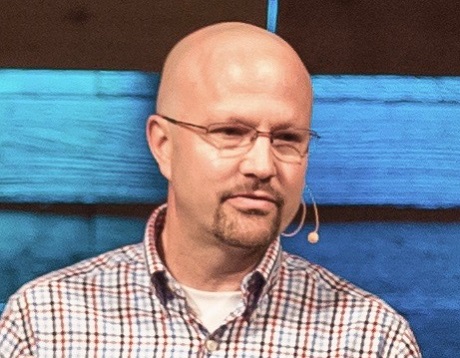- Calls to this hotline are currently being directed to Within Health, Fay or Eating Disorder Solutions
- Representatives are standing by 24/7 to help answer your questions
- All calls are confidential and HIPAA compliant
- There is no obligation or cost to call
- Eating Disorder Hope does not receive any commissions or fees dependent upon which provider you select
- Additional treatment providers are located on our directory or samhsa.gov
Pros and Cons of Online Therapy for Eating Disorders

Many individuals live in remote areas, a long way from professionals trained to treat eating disorders such as anorexia, bulimia, and binge eating disorder. For them, doing traditional face-to-face therapy is not a realistic option. Additionally, patients with eating disorders have to contend with long waiting times to receive treatment [1], but what about online therapy for eating disorders?
To address the needs of those who live in remote areas or are confronted with long wait times to meet with professionals, more counselors, dietitians, and physicians are offering online care for eating disorders.
Efficacy of Online Counseling for Eating Disorders
The first question to ask about online counseling is, “Does it work?” Initial studies suggest that, yes, online therapy can be beneficial for clients who do not have the option of doing face-to-face sessions and that it is a viable option to being on a waitlist and not getting any help at all.
Researchers at the University of North Carolina at Chapel Hill conducted a study utilizing cognitive behavioral therapy to treat bulimia, which found that “online group therapy can be just as effective as face-to-face treatment, although the pace of recovery may be slower.” [2] And researchers at Chiba University in Chiba, Japan, completed a study and concluded that conducting therapy “via videoconference for treating bulimia nervosa and binge-eating disorder is feasible.” [3]
Pros of Online Counseling for Eating Disorders
 Some of the benefits of online counseling include:
Some of the benefits of online counseling include:
- Scheduling – it is often easier to find time to meet with a professional when you don’t have to consider travel time.
- Convenience – when doing an online session, you can meet from home, office, or anywhere that you can shut the door and have some privacy.
- Less anxiety – many individuals find it less intimidating to talk by video in the comfort of their home than to walk into a clinic’s waiting room and meet a stranger in person.
- More connection – if you are part of an online group, you will find more ways to be connected through messaging, etc.
Cons of Online Therapy for Eating Disorders
- Less Personal – there is something to be said for talking with a person face-to-face. Talking by video limits the power of non-verbals and the human experience.
- Technical issues – if you have problems with your computer or device used to connect to the internet, or if your therapist does, you can miss appointments or sessions can be interrupted by poor connections.
- Less accountability – there are certain things that can be detected in person, particularly about one’s health, that can be missed in online counseling.
- It’s easier to isolate – this is especially true if you do group work. Going to a group in person leads to more social interactions before and after therapy.
If you choose to do online work with a professional, be sure to ask if they are licensed in your state.
Try out an Eating Disorder Hope Online Support Group!
Anorexia Nervosa Support Group
- Weekly Wednesday Group
- 12noon PST / 3pm EST
- All individuals seeking recovery support for anorexia welcome
- $20 per group session – paid upon registration
- Hippa Compliant Platform
- peer support and psychoeducation based upon ACT, DBT & CBT provided
- Led by a therapist experienced in group dynamics
- No therapy or counseling provided
- Not a replacement for therapy or treatment, but an additional support
- Scholarships available
- Weekly Thursday Group
- 12noon PST / 3pm EST
- All individuals seeking recovery support for bulimia welcome
- $20 per group session – paid upon registration
- Hippa Compliant Platform
- peer support and psychoeducation based upon ACT, DBT & CBT provided
- Led by a therapist experienced in group dynamics
- No therapy or counseling provided
- Not a replacement for therapy or treatment, but an additional support
- Scholarships available
Binge Eating Disorder Support Group
- Weekly Tuesday Group
- 12noon PST / 3pm EST
- All individuals seeking recovery support for binge eating disorder welcome
- $20 per group session – paid upon registration
- Hippa Compliant Platform
- peer support and psychoeducation based upon ACT, DBT & CBT provided
- Led by a therapist experienced in group dynamics
- No therapy or counseling provided
- Not a replacement for therapy or treatment, but an additional support
- Scholarships available
REFERENCES
1. Vollert, B., Beintner, I., Musiat, P., Gordon, G., Görlich, D., Nacke, B., … Jacobi, C. (2018, February 26). Using internet-based self-help to bridge waiting time for face-to-face outpatient treatment for Bulimia Nervosa, Binge Eating Disorder and related disorders: Study protocol of a randomized controlled trial. Retrieved March 9, 2020, from https://www.sciencedirect.com/science/article/pii/S2214782917301239
2. Online group therapy may be effective treatment for bulimia nervosa. (2016, November 30). Retrieved March 9, 2020, from https://www.sciencedaily.com/releases/2016/11/161130104151.htm
3. Numata1, N., Matsumoto1, K., Sutoh3, C., Ibuki1, H., Oshiro1, K., Tanaka3, M., … Research Center for Child Mental Development. (n.d.). Internet-Based Cognitive Behavioral Therapy via Videoconference for Patients With Bulimia Nervosa and Binge-Eating Disorder: Pilot Prospective Single-Arm Feasibility Trial. Retrieved March 9, 2020, from https://formative.jmir.org/2019/4/e15738/
About the Author:
 Travis Stewart, LPC has been mentoring others since 1992 and became a Licensed Professional Counselor in 2005. His counseling approach is relational and creative, helping people understand their story while also building hope for the future. Travis has experience with a wide variety of issues which might lead people to seek out professional counseling help.
Travis Stewart, LPC has been mentoring others since 1992 and became a Licensed Professional Counselor in 2005. His counseling approach is relational and creative, helping people understand their story while also building hope for the future. Travis has experience with a wide variety of issues which might lead people to seek out professional counseling help.
This includes a special interest in helping those with compulsive and addictive behaviors such as internet and screen addiction, eating disorders, anxiety, and perfectionism. Specifically, he has worked with eating disorders since 2003 and has learned from many of the field’s leading experts. He has worked with hundreds of individuals facing life-threatening eating disorders in all levels of treatment. His website is wtravisstewart.com
The opinions and views of our guest contributors are shared to provide a broad perspective on eating disorders. These are not necessarily the views of Eating Disorder Hope, but an effort to offer a discussion of various issues by different concerned individuals.
We at Eating Disorder Hope understand that eating disorders result from a combination of environmental and genetic factors. If you or a loved one are suffering from an eating disorder, please know that there is hope for you, and seek immediate professional help.
Published March 13, 2020, on EatingDisorderHope.com
Reviewed & Approved on March 13, 2020, by Jacquelyn Ekern MS, LPC

The EatingDisorderHope.com editorial team comprises experienced writers, editors, and medical reviewers specializing in eating disorders, treatment, and mental and behavioral health.

